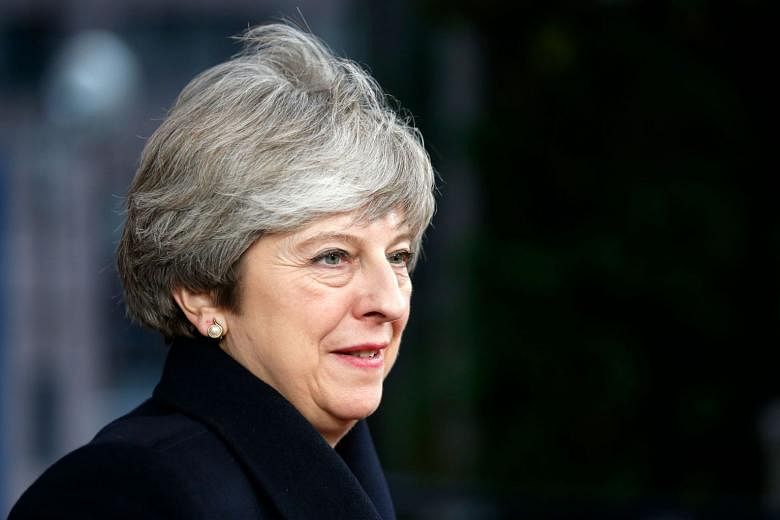LONDON (AFP) - British Prime Minister Theresa May scored a key success in clinching a Brexit agreement with Brussels on Friday (Dec 8) but faced an immediate backlash from hardliners at home for making compromises.
"It's not Brexit," Nigel Farage, the former leader of the UK Independence Party and a major driving force behind last year's Brexit referendum, told BBC radio.
"A deal in Brussels is good news for Mrs May as we can now move on to the next stage of humiliation," he said on Twitter.
Boxed in by rival pro-Brexit and pro-EU factions within her own Conservative party, May has been at risk of being toppled ever since a general election in June in which she lost her majority.
The Sun earlier this week even reported a plot to oust her before Christmas and install her Brexit Secretary David Davis as prime minister.
While that threat may have receded for now, it has not gone away and May faces an uphill struggle getting parliamentary backing for the deal.
Campaign group Leave.EU issued a scathing reaction to Friday's deal, saying that "our lily-livered politicians have sold the country down the river". It called the agreement a "complete capitulation".
'BIG SUCCESSFUL MOMENT'
Government ministers, however, lined up to congratulate May with her deputy Damian Green saying it was a "big successful moment" for her.
Environment Secretary Michael Gove, a top Brexit campaigner who ran against May in a party leadership race last year, said the preliminary agreement was a "significant personal, political achievement".
Conservative MP Anna Soubry, a leading pro-EU advocate, gave the deal a "warm welcome" and hoped it would heal the "dreadful Brexit divide".
May was on the brink of sealing a deal in Brussels on Monday but the bid was scuppered by Northern Ireland's Democratic Unionist Party, whose 10 MPs prop up the government on key votes in parliament.
DUP leader Arlene Foster offered only grudging support to May on Friday, saying that aspects of the agreement could require further examination.
The reactions in the politically-influential rightwing press were also less than glowing.
Daily Mail columnist Quentin Letts wrote: "The more the Eurocrats praise Mrs May's 'determination', the more uneasy we should feel."
The Sun's political editor Tom Newton Dunn said the deal was "a coup for May" but "this was supposed to be the easy bit and it took nine long and painful months".
'HOW LONG BEFORE IT'S TORN APART?'
There were also warnings from the opposition.
Keir Starmer, chief Brexit spokesman for the Labour party, welcomed the deal but cautioned that the "political price of compromise" was not yet known.
The pro-EU Liberal Democrats, who have called for a second referendum on EU membership, wrote: "How long before it's torn apart by her own MPs? "It should be the British people, not Tory Brexiters and DUP, who get to decide whether this deal is good enough."
After a negotiation that has focused on issues in Northern Ireland, May faces further challenges in other devolved nations - Scotland and Wales - where support for the EU is far stronger than in England.
Scottish First Minister Nicola Sturgeon, who wants independence for Scotland from the rest of Britain, warned that the "devil is in the detail and things now get really tough."
"If Brexit is happening (wish it wasn't) staying in single market & customs union is only sensible option," she said on Twitter, adding that any "special arrangements" for Northern Ireland should also be available to Scotland.

